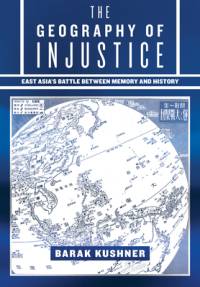Om The Geography of Injustice
In The Geography of Injustice, Barak Kushner argues that the war crimes tribunals in East Asia formed and cemented national divides that persist into the present day. In 1946 the Allies convened the Tokyo Trial to prosecute Japanese wartime atrocities and Japan's empire. At its conclusion one of the judges voiced dissent, claiming that the justice found at Tokyo was only "the sham employment of a legal process for the satisfaction of a thirst for revenge."
War crimes tribunals, Kushner shows, allow for the history of the defeated to be heard. In contemporary East Asia a fierce battle between memory and history has consolidated political camps across this debate. The Tokyo Trial courtroom, as well as the thousands of other war crimes tribunals opened in about fifty venues across Asia, were legal stages where prosecution and defense curated facts and evidence to craft their story about World War Two. These narratives and counter narratives form the basis of postwar memory concerning Japan's imperial aims across the region. The archival record and the interpretation of court testimony together shape a competing set of histories for public consumption. The Geography of Injustice offers compelling evidence that despite the passage of seven decades since the end of the war, East Asia is more divided than united by history.
Visa mer

